Korean manufacturers on edge over US visa quotas
South Korean companies worry the US may cut work visas if Donald Trump wins the presidential election
By Mar 03, 2024 (Gmt+09:00)
LG Chem to sell water filter business to Glenwood PE for $692 million


KT&G eyes overseas M&A after rejecting activist fund's offer


Kyobo Life poised to buy Japan’s SBI Group-owned savings bank


StockX in merger talks with Naver’s online reseller Kream


Meritz backs half of ex-manager’s $210 mn hedge fund


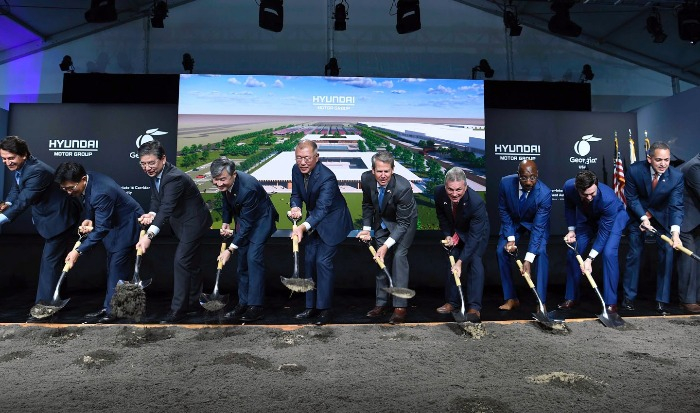
A South Korean automotive parts maker, which made its inroads into the US in the mid-2010s, sharply expanded its production facilities in Alabama last year in tandem with Korean carmakers’ aggressive investments in the world’s second-largest automobile market.
However, their huge investments were not accompanied by workforce planning.
It is now tackling a workforce shortage, especially manager-level engineers to be dispatched from its head office in Korea due to US visa quotas.
Of the 20 employees it wanted to bring in from Korea, fewer than five received professional employment visas, or the H-1B, from the US over the past year. The H-1B visa allows US-based employers to hire nonimmigrants and foreigners as workers in specialty occupations.
“We may face quality or production yield issues due to the lack of specialized employees,” said an official of the company.
They want to send middle and senior managers to the US to facilitate communication between their head offices and employees hired in the US and avoid technology leakage.
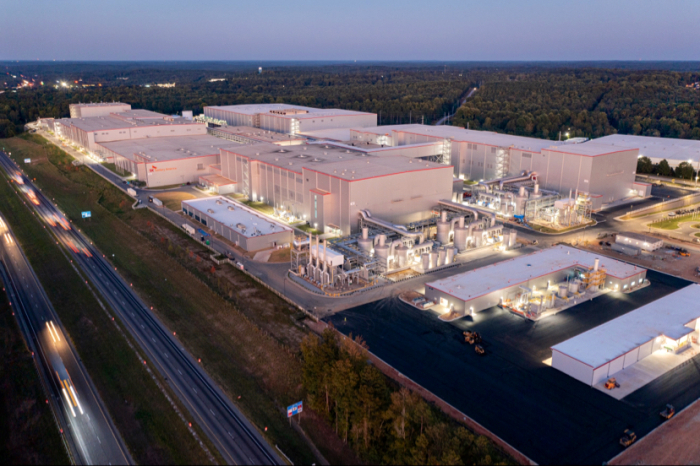
South Korea’s household names such as Samsung, Hyundai and SK have been spending billions of dollars on building new plants and expanding facilities in the US.
Such moves came after the enactment of the US Inflation Reduction Act (IRA) and the CHIPS and Scient Act in 2022, aimed at boosting investment and creating jobs in the US high-tech sectors.
Despite their aggressive investments in the US, however, the number of Koreans obtaining H-1B visas has hardly increased.
According to the US Citizenship and Immigration Services, 2,019 South Koreans were newly awarded the H-1B in 2022, up 7.9% compared to 2020. But the number has remained between 1,800 and 2,000 for several years.
Grappling with a labor shortage, a Korean rechargeable battery materials company is hiring temporary Korean employees with one-year optional practice training (OPT) visas issued for international graduates. It recently completed a plant in the US state of Georgia. If the temporary workers fail to earn an H-1B visa within one year, they must leave the US.
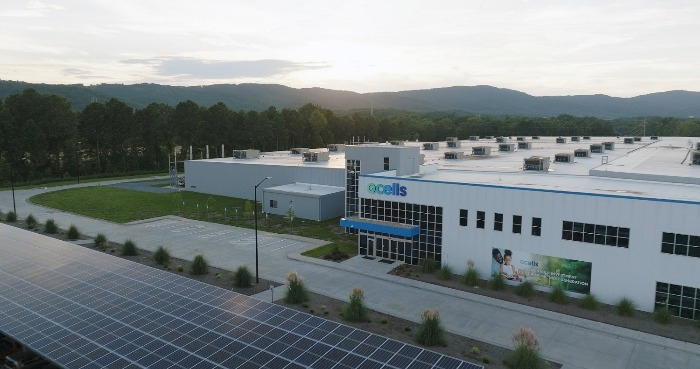
Korean professionals come to the US generally on two types of visas: H-1B granted to nonimmigrant foreigners with a bachelor’s and master’s degree and L-1 or E-2 issued to expatriates.
Employees of large companies find it relatively easy to obtain expatriate visas.
However, employees at their small and medium-sized suppliers rely mainly on the H-1B program.
RAPIDLY GROWING US INVESTMENTS
South Korean companies invested a combined $7.4 billion in the US in the first nine months of last year, nearly matching the $7.5 billion they spent on their US facilities for all of 2022.
For the entire 2023 year, their capital expenditure in the US is estimated to have quadrupled compared to the $2.3 billion in 2020, according to industry officials.
“We need more than three times as many professionals compared to two to three years ago, but it is becoming more difficult to find them,” said another Korean parts maker official.
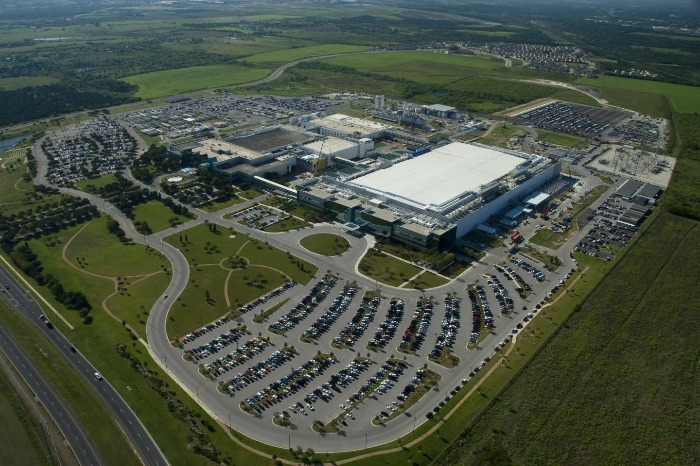
More than a decade ago, South Korea had discussed establishing a new professional visa program exclusively for Koreans on the sidelines of the negotiations for the Free Trade Agreement (FTA) with the US, which came into effect in 2009.
However, they had made no progress on that matter.
On the other hand, other FTA partners of the US have received exclusive work visa quotas: Australia (10,500), Singapore (5,400), Chile (1,400), Canada (unlimited) and Mexico (unlimited)
Last year, the number of H-1B visa applicants soared 60% to a record 758,994 from the year prior, according to industry sources. The US issues 85,000 H-1B visas annually, meaning only one out of nine applicants were awarded the professional visa in 2023.
Another Korean company official said the visa is issued at random like a lottery system. However, in reality, Indian and Chinese people working at US Big Tech end up taking a growing share of the H-1B visa quotas.
He added that the applicant number for H-1B visas will exceed 1 million this year. Only 2% of Korean applicants for the H-1B visa tend to receive it.
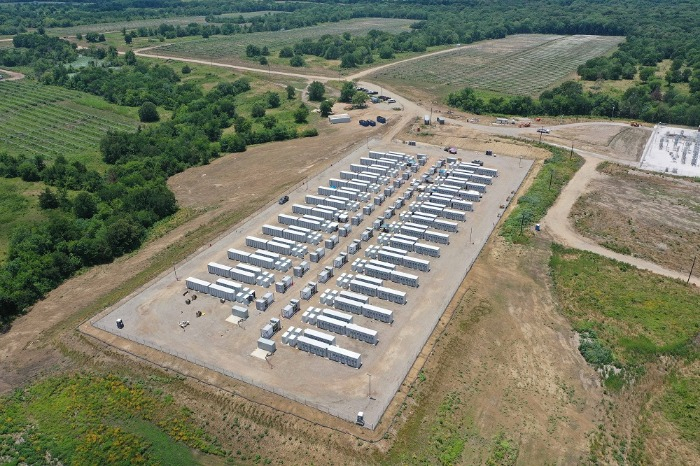
Worse yet, South Korea’s three electric vehicle battery makers – LG Energy Solution Ltd., Samsung SDI Co. and SK On Co. – are slated to commence the operation of 17 plants in Georgia, Ohio and Michigan in aggregate, starting next year.
Samsung Electronics Co., the world's largest memory chip company, will operate 11 semiconductor factories in Texas in the coming years.
US ELECTION
Korean companies worry the US may tighten visa rules for foreign workers if Donald Trump, the likely Republican candidate, wins the US presidential election in November.
Back in 2020, the Trump administration temporarily suspended work H-1B and expatriate visa programs to protect domestic jobs within the US.
Further, it had planned to reduce the visa quotas for foreign workers, which was withdrawn in the face of opposition among American politicians, though.
Korean companies are now urging the government to step up diplomatic efforts for the US Congress to pass a bill that grants new 15,000 E-4 visas annually to Korean employees before the US presidential election.
The E-4 visa is an employment-based immigration program issued to certain special immigrants. Since the bill was proposed in 2013, it has been pending in the US Congress.
Write to Sang-Hoon Sung at uphoon@hankyung.com
Yeonhee Kim edited this article
-
 BatteriesSamsung SDI, Stellantis to build 2nd US EV battery plant in Indiana
BatteriesSamsung SDI, Stellantis to build 2nd US EV battery plant in IndianaOct 12, 2023 (Gmt+09:00)
1 Min read -
 Electric vehiclesHanon to build $40 mn heat pump systems plant in US state of Georgia
Electric vehiclesHanon to build $40 mn heat pump systems plant in US state of GeorgiaMay 24, 2023 (Gmt+09:00)
2 Min read -
 BatteriesSK On to spend $352 million to mass produce solid-state batteries by 2028
BatteriesSK On to spend $352 million to mass produce solid-state batteries by 2028Apr 24, 2023 (Gmt+09:00)
2 Min read -

-
 Electric vehiclesHyundai Motor to boost US presence with $5.5 bn new Georgia EV plant
Electric vehiclesHyundai Motor to boost US presence with $5.5 bn new Georgia EV plantOct 26, 2022 (Gmt+09:00)
3 Min read -
 Electric vehiclesSK Signet to build $15 million EV charger plant in Texas
Electric vehiclesSK Signet to build $15 million EV charger plant in TexasOct 12, 2022 (Gmt+09:00)
1 Min read -
 Electric vehiclesHyundai to invest $10.5 bn in US EV, future mobility sectors
Electric vehiclesHyundai to invest $10.5 bn in US EV, future mobility sectorsMay 22, 2022 (Gmt+09:00)
5 Min read -
 BatteriesLG Energy to invest over $4.5 bn to expand US battery facilities
BatteriesLG Energy to invest over $4.5 bn to expand US battery facilitiesMar 12, 2021 (Gmt+09:00)
3 Min read


